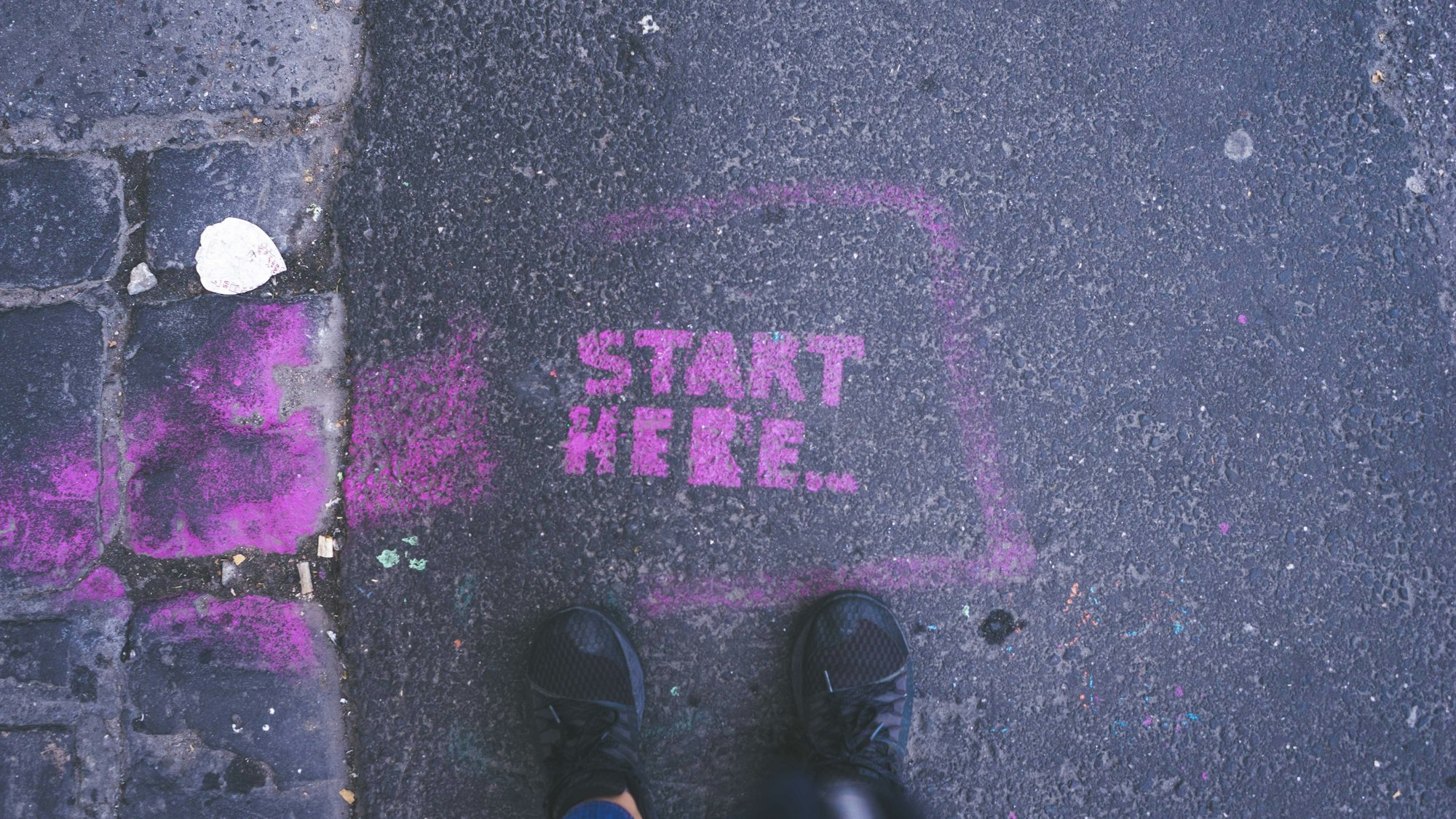Mindful Running: Your Hidden Meditation
Whether you love or hate running, this post explains the therapeutic benefit of any type of exercise. Find how cardio can be your new active meditation!

If you spend one short hour around me, you will quickly learn that I am a runner. I adopted this identity years ago. Ask any of my friends or coworkers: they will tell you I describe running as therapeutic. Yes, the same therapeutic we use to describe our patients on pharmacologic therapy in practice.
How did I get here? When did running become my drug? And how can you change it from a tedious workout to a mind-clearing therapy session?
Brief Background: I grew up a soccer player, so running has always been a part of my day-to-day activity. I dabbled in middle school track (*cough* as the manager *cough*) and approximately 3 days of high school cross country as well.
HOWEVER, you by no means need to have a background in endurance sports to benefit from this post!
It was not until college, after all of my student athlete days were over, that I found a passion for running. Over the past few years, I began to use running as my escape. If I missed a few days of running, I notice I am more impatient and short tempered. That is because running is my meditation.
What is running meditation (i.e. mindful running)?
Running meditation is meditation in action. Often, meditation is associated with sitting quietly with your eyes closed while you focus on your breathing. Well, why can't we move quickly with our eyes open while focusing on our breathing? The blank space of our mind and the clearing effect that meditation brings can still be present in mindful running. Some of my best ideas and thoughts come during a run. Today, we are going to discuss how you can start incorporating active meditation into your routine, too!
I will break this post into two sections:
- Running naïve individuals (you do not currently run 1-2x per week)
- Experienced runners (you do currently run multiple times a week)
I encourage you to skip now to the section that best describes you.
So, let's get into it!

1. Running naïve individuals
People frequently ask me "how do I start to run" or "how do I start enjoying running?" To that I always start with:
--> If running hurts, or you enjoy some other form of cardio more, do not force yourself to run! Do the form of exercise that you love the most.
Whether it is cycling, swimming, using the elliptical, rollerblading, etc., find the activity you enjoy (or think you'll enjoy), and just start doing it!
I know, easier said than done. Sometimes we do not have the appropriate equipment or maybe the weather outside is not ideal. That is the beauty of exercise, though. We find ways to adapt and overcome some of these barriers. By overcoming these barriers, we experience a rush of endorphins and accomplishment that boosts our mood! Plus, you build mental and physical grit.
Running has a pretty low barrier to entry (at first). Grab a pair of shoes and you are pretty much 90% of the way there. Here are some quick tips on how to go from your occasional jog to an anticipated meditation session!
- Start. You have to take the first step to improve. Start by walking. Yes, walking. Or start by jogging so slow you are basically walking (we call this a soccer jog, wink wink). These first few sessions do not have to be 30 to 60 minutes apiece. If you only have 10 minutes to allocate to a session, start there.
- Make it a habit. You are not going to wake up tomorrow and magically have the motivation to run/walk. You have to make a plan. Schedule the days that you will run. Want to run 3 times per week? Pick three days, right now, that work with your schedule and show up on those days.
- Forward thinking, backward planning. Now that you have your set days, set out your gear/necessities the night before to facilitate your run/walk. Pack a to-go bag if you have to hit your session after a long day of work. By taking time to prepare, you will be more inclined to commit the next day, even when your motivation might be lacking.
- Reflect on your why. Why are you choosing to run/walk? Better health? More steps in the day? Weight loss goal? Intrigued by mindful activity? Great! Think about your why as you are running/walking. After a week or two of consistency, you will be ready to begin the more meditative activities. By reflecting on your why, you have already started being mindful of your running/walking.
- Focus on your breathing. Once your body becomes adapted to the new (or increased) activity, you can now focus less on pushing through each session and more on enjoying the process. Focus on each breath that you take. Think about how you are supplying oxygen to your lungs with every inhale.
- Visualize your muscles. This might sound weird, but it has helped me through many runs. Think about your muscle fibers extending and contracting. Think about the ATP your body produces using the oxygen you inhaled. Focus on how your foot hits the ground, how your arm swing facilitates stride... become totally engrained with the action of running. You will find yourself forgetting you are physically exerting yourself!
- Remember to take it slow. Mindful running is not a competition. You are practicing this exercise for yourself, not for the leaderboards on Garmin or Strava. Go as slow as you need to find your meditative state.

2. Experienced runners
Honestly, many experienced runners already practice mindful running, they just might not know it.
I mean, we are already running multiple times a week, and I am pretty sure we do this for more than cardiovascular benefits. We run to clear our heads. If you find yourself hitting the pavement after a stressful day at work or before the day even begins, congrats, you are a mindful runner.
Don't believe me? Let's take a look at what mindful running looks like:
- It's not a sprint. You know the feeling: always having to run at the same pace or faster than your previous run. Or you see your friend's recent pace and you feel inclined to run faster. I am here to tell you to STOP! Mindful running includes relaxation (ironic, right) and an easy pace. You have to run at an effort easy enough to facilitate your mind wandering. Here is a good start: take your 5k pace (let's say 7:30 minutes/mile) and run 2 minutes per mile slower (so 9:30 minute/mile). Enjoy the process of running, not the pace on your watch.
- It is not a structured workout, either. If you are anything like me, when I am doing a speed workout or tempo run, my mind is constantly on my pace and distance. This is counterintuitive to mindful running as discussed in bullet number 1. Meditation while running comes from those easy, thoughtless runs.
- Focus on your breathing and muscle engagement. Similar to numbers 5 and 6 in the "Naïve Runners" section, this is 100% applicable to experienced runners. Focus on each breath that you take. Think about how you are supplying oxygen to your lungs with every inhale. Think about the ATP your body produces using the oxygen you inhaled. Think about your muscle fibers extending and contracting. Focus on how your foot hits the ground, how your arm swing facilitates stride... become totally engrained with the action of running. Bonus: this will help you find any flaws in your form. You can use mindful running to slowly adjust your foot strike/pelvic tilt/shoulder swing/etc.
- Leave the watch at the door. I heard on a podcast recently that some runners are over-obsessed with their run data. For example, the hosts mentioned an article that mentioned a small percentage of runners will stop running if their watch dies on a long run because they cannot track distance or pace. (I wish I could find this article online, but I cannot, so take this with a grain of salt). Just because you do not have the objective data does not mean the run is pointless!! Go for your mindful run based on feel and physical exertion. This will help engage meditation as you are focusing on your breathing and muscle engagement, not the pace on your watch.
- Practice gratitude (and stop comparing yourself to others). Do I sound like a broken record, yet? Be thankful for your ability to run. Stop looking at the leaderboards. Give your body grace and listen to it! If you find negative thoughts creeping in during your runs, try to counter them. You may not be where you want to be in life, but every day presents an opportunity to make progress toward your goals. Even practicing mindful running once or twice a month is a great place to start. Mindful running does not have to be every day. Work up to once a week. You will soon be looking forward to that easy, pace-free, structure-free run. I know I look forward to my easy runs after practicing them for the last few months!

Closing Remarks
I hope you found some benefit and a new-found appreciation for running from this post. Remember to keep an open mind when trying something new. You might not feel the meditative, relaxing "magic" during your first session. That is okay. Give mindful running a chance for a week or two.
Discover that running is not your vibe? Use this post to work mindful exercise into your life. Whatever "being active" looks like to you: own it!
Other tips/tricks to try for any type of individual trying to practice mindful exercise:
- Consider leaving the headphones at home. Appreciate nature and your body's ability to exercise. Channel your thoughts on positive thoughts and your breathing as mentioned above. You do not always have to have music or a podcast in your ears. You might think you do, but try it just one time, trust me!
- Fall in love with the process, not the end result. Learn to appreciate every run, every recovery session, and every ounce of food that you use to fuel your body. When you start to love the journey, the end result does not matter. You work so hard on yourself throughout the process. One day you may realize there never really is an "end." You keep pushing, keep improving, and continue to set bigger and better goals!
- Find your jam (or talk show). This is the opposite advice from bullet 1 in this section, but for good reason. Sometimes the right music or podcast facilitates your mind to wander and deep thought to occur. Too many times have I either 1) put one song on repeat and gone for a mindful run or 2) heard something in a podcast that made me reflect on my own life or running habits which leads to mindful running.
- Exercise with others. As much as you might associate meditation with solidarity, it does not have to be. Running with a friend or group of people can be extremely therapeutic. You forget about the running and focus on the conversations. My husband and I will occasionally run together and spend 3 miles a piece just ranting about our days. Having a buddy to run with can be cathartic!

